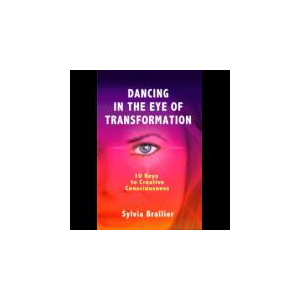2012 B.R.A.G. Medallion Honoree: Tony Johnson is a studious young man planning to soon graduate from much more than high school. Although his zip code places him in a Bronx tenement pre 'rise of Obama', his sights are set far beyond the trappings of a humble upbringing. Collegiate dreams combined with falling in love with a white classmate put him strongly at odds with his father. He incurs Lionel Johnson's wrath for the sins of ambition and daring to be with Janet Mitchell. Seeing unrealized goals reincarnated in the eyes of his eldest son remind Lionel of what once could have been, and of what went wrong. His own upbringing in a segregated town established a bitter, prejudiced outlook that is the only legacy he has to pass down to his children. When his job and role as primary breadwinner are lost, Lionel's authority erodes and he drowns disappointment one drink at a time. This affords Tony an opportunity to assert independence rather than allowing history to repeat itself and his fate to be set by chance and circumstance. Throughout the course of a tumultuous year, Tony comes to learn that the world is not as black and white as he and his father's opposing mindsets would suggest. *** Pickering's style is fluid and crisp. There's a certain clarity to the prose that's considered and well judged - just enough to paint the picture and more than enough to drive along the narrative. --Khome (UnheardWords.com) ***
Media Mentions
Praise and Reviews
Roy Pickering is a writer who lives in New Jersey. Roy wrote a book called Patches of Grey. It’s a coming-of-age novel, which is set in the projects of New York City. Most, if not all, of the people who live in the projects occupy a zone known as below-poverty-level. They are on welfare, live in subsidized housing, own nothing, have nothing and hope for nothing. Their daily lives revolve around drugs, violence and survival.
Patches of Grey is the story of Tony Johnson, who is a high school senior. Tony is bright and ambitious, and Tony wants out. Tony recognizes that there’s a great big world out there. He can’t imagine what it’s like - not really - but he knows it’s there. He has his sights set on a college scholarship as his magic carpet to a new life. Then he meets a girl. She is white. Tony is black. Which means Tony’s status - the amount of melanin in his skin - becomes a focal point of tension. And racial tension exists because people, who differ in skin-color, exist.
Right away, the reader groans. Not another version of West Side Story steeped in the quandary of race relations and gangs and loss of innocence and heartache and teenage angst and blah, blah, blah. Yawn. Been there, done that.
Actually, Roy Pickering pulls it off without sliding down the slippery slope into the miasma of the same old same old. He pulls it off because he’s one heck of a writer. His metaphors are wonderful, and far from cliché. And he moves from scene to scene smoothly and avoids making the reader feel like he’s being dragged along against his will. Pickering accomplishes this feat through restraint, unobtrusiveness, and delicacy of allusion. Which is a pretentious-literary-reviewer way of saying that the guy can really write.
Patches of Grey deftly immerses the reader in a world that, according to some, is black and white. Good and bad. Rich and poor. The haves and the have nots. Law-breakers and law-abiders. But in the end, the world isn’t that simple. Really, the world is made up of lots of grey patches - those areas where human beings compromise. Human beings compromise because they don’t know what else to do. And when compromise enters the picture, a sense of tarnish oozes across the panorama.
In Patches of Grey, many of the characters are tarnished. Tony’s father has black skin, but he’s a grey person. His bitterness and hatred of everything and everybody, especially of himself, make him grey. Janet, who is Tony’s white girlfriend, suffocates in cloudy thinking, which results in grey actions. She tries to please everyone and doesn’t please anyone, not even herself.
In the end, Tony steps out of the grey patches and walks into the light. Which means the conclusion of the story is far from cliché. In fact, it’s unpredictable. And this alone recommends the book - because in the end, Patches of Grey is about the cost of loss, the cost of being human, the human cost of life not turning out the way it should.
All that being said, the reviewer would make a suggestion to Roy Pickering, who has written an admirable novel in Patches of Grey. Roy should ramble on in his next book. Choose a meandering story of Roberto Bolano-like aspect, and let his tremendous talent seize control of him, rather than him trying to control his talent. For as Nicole Kidman told Tom Cruise in Days of Thunder - another coming-of-age-story - “control is an illusion.” And if/when that artistic surrender happens - to quote Led Zeppelin - “ramble on.” Let the words flow. And because Roy Pickering’s talent is astonishing and ignores every precedent, he doesn’t need to be bound by the constraints of a traditional novel. With his literary gift, he can jump out of that box and nurture his advantages. He can produce an epic novel as vast and as powerful as the tundra of Siberia.
Reviewed by Randall Radic at AlvahsBooks.com
Author Interviews
Related Links
Related Books
More
No Vacancies, A Collection of Short Stories, Volume 1
Comics & Graphic Novels
General Fiction
Mystery & Thrillers
4k views

Dancing in the Eye of Transformation, Ten Keys to Creative Consciousness
Entertainment & Style
General Fiction
Health, Mind & Body
4k views













